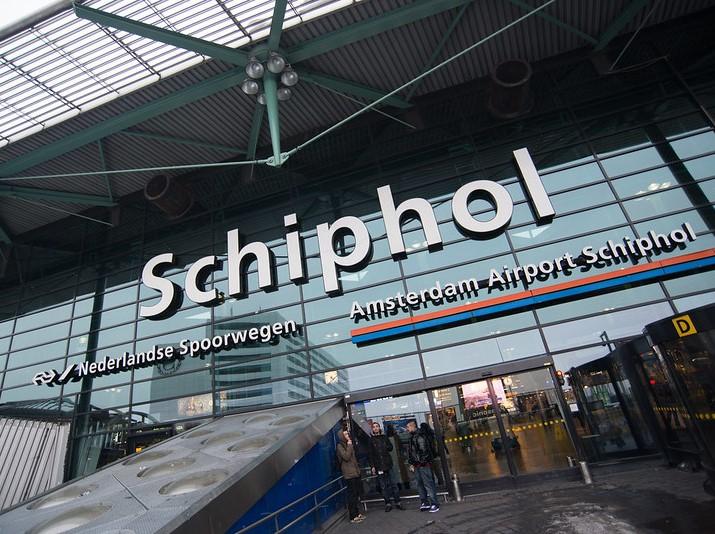Health officials in the Netherlands today said they have detected the Omicron (B.1.1.529) variant in two samples collected before travel measures took effect, raising the possibility of earlier and wider spread than originally thought.
As countries bar travel to southern African countries to assess the arrival of the new variant and attempt to limit its spread, the head of the World Health Organization (WHO) today again pushed back on wide-ranging travel bans. In other developments, companies that make vaccines and treatments are airing concerns about potential drops in effectiveness, which today resulted in more stock market jitters.
Netherlands probes earlier cases, adds new details about flight test results
In a statement today, the Netherlands' National Institute for Public Health (RIVM) said that the samples that yielded the Omicron variant were obtained on Nov 19 and 23, before South Africa announced its findings and before travel bans went into effect. The samples were taken during municipal health service testing, and investigations and contact tracing are under way.
RIVM also provided more details about the results of COVID-19 testing of 624 people returning from South Africa who arrived at Schiphol airport on Nov 26. Of 61 who tested positive for COVID-19, 14 had the Omicron variant. Sequencing revealed different strains of the Omicron variant, suggesting that people were probably infected from different sources and locations.
Meanwhile, more countries reported Omicron cases. Japan confirmed its first case, which involves a Namibian diplomat who arrived in Japan on Nov 28, before the country's travel ban went into effect. Officials said the man had been fully vaccinated and was asymptomatic upon his arrival in Japan but developed a fever the next day.
In an update, the European Centre for Disease Prevention and Control (ECDC) said 44 cases have now been detected by 11 European Union and European Economic Area countries, and so far, the majority had a history of travel to African countries. For cases with known clinical information, all infections were asymptomatic or mild.
England reported 8 more cases, bringing its total to 13. Also the UK's Health Security Agency said Scotland has reported nine cases. Jenny Harries, the HSA's chief executive, said officials expect to find more cases in the days ahead as investigations and contact tracing ramp up.
In response to Omicron variant emergence, UK experts are now recommending booster shots for everyone older than 18, and the government has implemented a mask mandate for public transport as well as shops, banks, and beauty parlors.
Elsewhere, Canada reported three more cases, including two from Ottawa and one from Quebec, bringing its total to five.
WHO challenges travel bans, releases new guidance
In remarks at an information session for member states today, WHO Director Tedros Adhanom Ghebreyesus, PhD, said it's understandable that countries want to protect citizens from a variant that's not fully understood. "But I am equally concerned that several Member States are introducing blunt, blanket measures that are not evidence-based or effective on their own, and which will only worsen inequities."
He called on countries to take rational, proportional steps in keeping with International Health Regulations.
In a related development, the WHO today released new international travel advice, given the Omicron developments. As of Nov 28, 58 had ordered travel bans due to the new variant.
The group urged countries to continue taking an evidence-based approach, emphasizing that blanket travel bans won't prevent international spread, but may put a heavy burden on lives and livelihoods while punishing countries for quickly reporting epidemiologic and sequencing data.
The WHO urged countries to regularly review and update the travel measures as new evidence comes to light about Omicron or any other variant.
Wary outlooks for vaccines, monoclonal antibody treatment
Though scientists don't have definitive answers about how well COVID-19 vaccines will protect against the Omicron variant with its large number of mutations, some of them concerning, officials from two vaccine companies signaled that existing ones might not be as effective and may need updated versions.
Moderna's Chief Executive Officer Stephane Bancel today told the Financial Times that based on his initial talks with scientists, current vaccines might not protect as well as they did against Delta and that it may take months to make variant-specific vaccines.
His comments prompted financial market drops in the United States, Europe, and Asia, according to the Washington Post.
Meanwhile, his counterpart at Pfizer, Albert Bourla, on Twitter today said following the company's experience with the Beta and Delta variants, scientists came up with an approach to develop and produce variant versions of the vaccine in about 100 days, if needed.
"Still, we believe that the best hedge against spread of the Omicron variant and any new variant that may emerge is getting all eligible people fully vaccinated and boosted, as recommended," he said.
Regeneron, maker of a monoclonal antibody treatment for COVID-19, said in a statement today that though there's no direct evidence evaluating the impact of its treatment against the Omicron variant, it has some concerns. It said earlier that in vitro analysis and modeling of individual mutations present in Omicron point to possible reductions in neutralization activity, both vaccine-induced and from monoclonal antibodies.
Delta developments
Though the world focused on the Omicron variant threat, the battle against Delta-driven surges continues, especially in Europe.
- The Netherlands is reporting a record weekly high for COVID-19 cases and is working to boost the number of intensive care unit (ICU) beds, according to Reuters.
- Greece today announced that it would make COVID-19 vaccination mandatory for those older than 60, the first in Europe to target an age-group.
- Danish officials said the country's COVID-19 surge shows signs of stabilization, likely helped by a rise in vaccine uptake and booster doses.





















